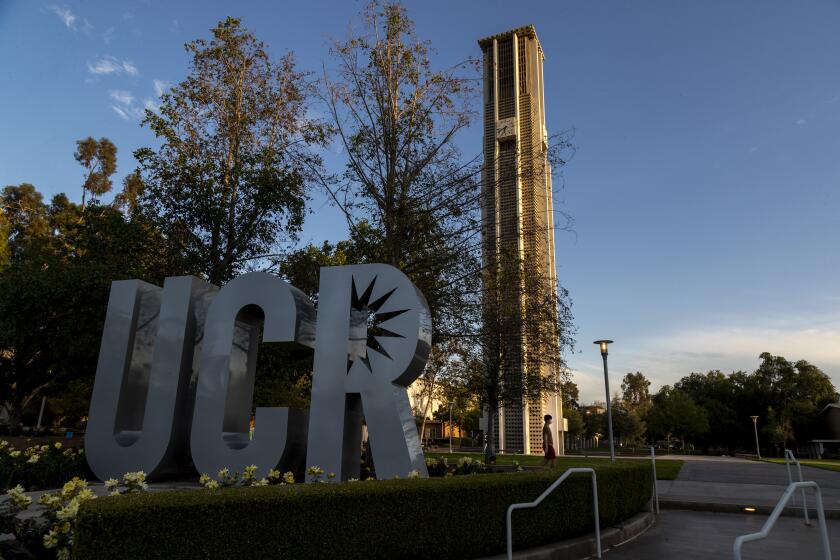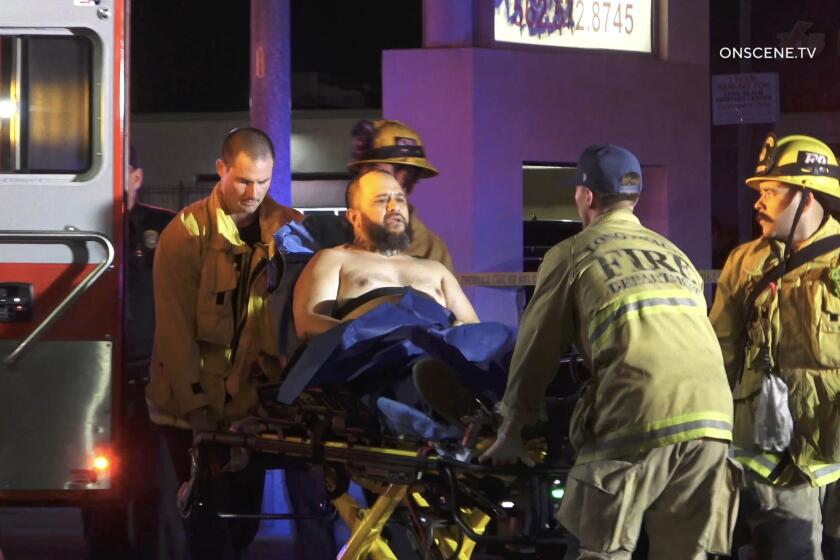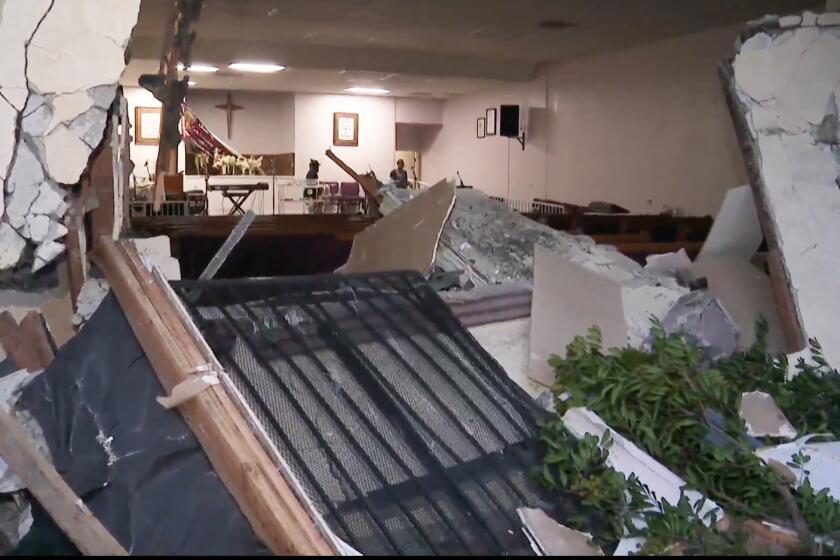Inquiry in Barsi Case Dropped Too Soon, Panel Says
An overburdened Los Angeles County Department of Children’s Services prematurely dropped its investigation into threats of violence in the family of Judith Barsi, the 10-year-old actress later slain by her father in July in West Hills, a county advisory panel said Tuesday.
After reviewing confidential files of the investigation, the Commission for Children’s Services recommended that the department become more sensitive to the impact of domestic violence on children and develop clearer guidelines for closing an inquiry.
Department of Children’s Services Director Robert L. Chaffee, appearing at a meeting of the commission Tuesday, defended his agency’s handling of the case. He said the child’s mother wanted it closed and “said, in essence, ‘Thank you very much. I don’t need you anymore.’ ”
The commission also called for more county and state funds for the Department of Children’s Services, disclosing that the social worker who handled the Barsi case had been assigned 67 cases, 27 more than a full caseload.
“Lack of funds is an excuse, to a degree, but it can only go so far,” Commissioner Thomas L. Becket said.
On July 27, authorities discovered the bodies of Judith Barsi; her mother, Maria, and her father, Jozsef. Investigators determined that the father had shot his wife and daughter, set part of the house afire and shot himself.
In the months before the deaths, the child’s agent, therapist and several family friends told the county child welfare authorities that Jozsef Barsi had threatened his family. But the department dropped its inquiry in June after Maria Barsi gave assurances that she was moving into an apartment, commissioners said.
Last month, Juvenile Dependency Court Judge Kathryn Doi Todd ordered the county to open its files on the case to the commission, a citizens advisory body to the County Board of Supervisors on children’s issues.
The commission would not disclose the file contents. But member Helen A. Kleinberg said during the meeting that one reason the county did not act was that Judith Barsi apparently was suffering from emotional, not physical, abuse.
Emotional abuse potentially can be as threatening to the child as physical abuse, Kleinberg said. “This is part of the whole problem: It’s easy to focus on physical abuse because we can see it.”
Before a case can be closed, caseworkers should visit the home or interview the child, said Kleinberg, who would not comment on whether the files indicated that Judith Barsi had been personally interviewed. Chaffee said he could not recall.
“I’m concerned that there isn’t some set of standards or guidelines” for closing cases, commission Chairwoman Nancy L. Daly said.
The department’s social workers have guidelines for handling cases, but each case is different, Chaffee said.
“If you had infinite money or infinite time, you could give a menu or a recipe to your staff to deal with every situation you can come up with,” he said.
Commissioners also criticized an agreement between the department and the caseworkers’ union limiting the extent to which workers can be disciplined if their caseloads are excessive.
Chaffee said his department’s 1,150 workers handle an average of 50 to 55 cases, when the norm should be 40 to 45. The number of caseworkers is down by 160 because of retirements and a county hiring freeze. Because state funds will be less than expected, the department plans to cut $4 million from its $171-million ‘88-89 budget.
Chaffee told the Board of Supervisors last week that his department plans to improve the training of employees regarding the danger to children posed by domestic violence, which the department has no legal mandate to handle.
Caseworkers are also being instructed to notify people who have complied with their legal obligation to report abuse--such as therapists--when the cases they reported have been closed, he said. Judith Barsi’s therapist was not told that the girl’s case had been closed.
Daly called Chaffee’s measures “a very positive first step.”
Daly also disclosed that Barsi family friends had told Children’s Services that state Department of Labor workers, who supervised filming involving Judith Barsi, said they saw signs that the girl was emotionally distressed, but never told county authorities.
More to Read
Start your day right
Sign up for Essential California for news, features and recommendations from the L.A. Times and beyond in your inbox six days a week.
You may occasionally receive promotional content from the Los Angeles Times.





